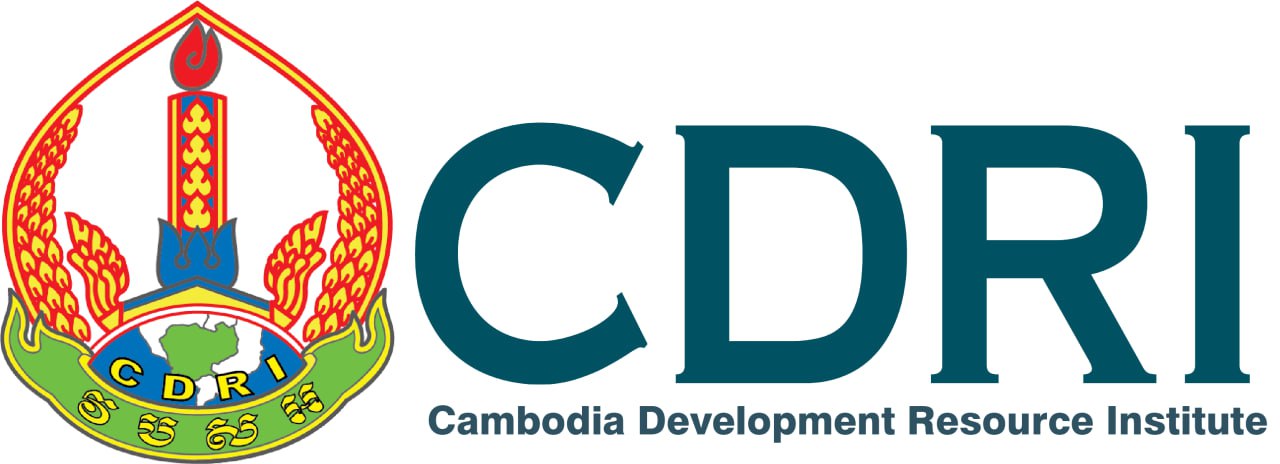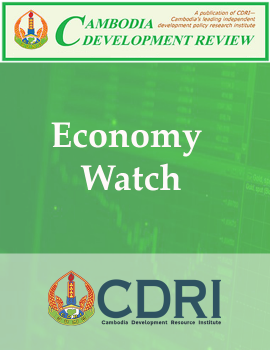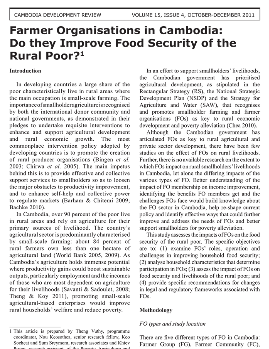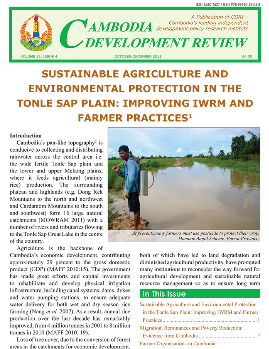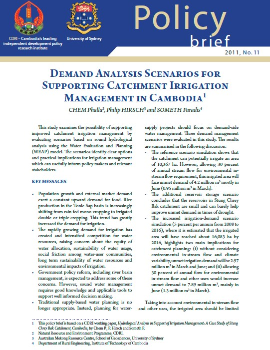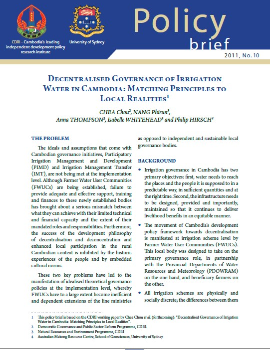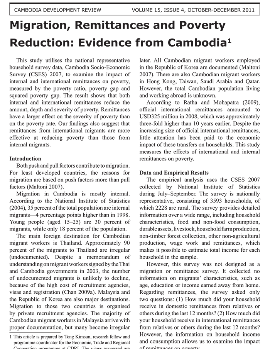
Migration, Remittances and Poverty Reduction: Evidence from Cambodia
This study utilises the national representative household survey data, Cambodia Socio-Economic Survey (CSES) 2007, to examine the impact of internal and international remittances on poverty, measured by the poverty ratio, poverty gap and squared poverty gap. The result shows that both internal and international remittances reduce the amount, depth...
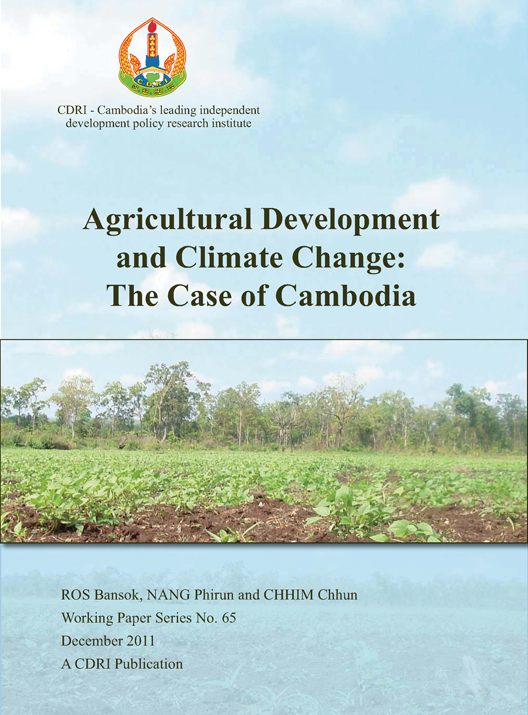
Agricultural Development and Climate Change: The Case of Cambodia
Cambodia’s economy is largely based on the agricultural sector and this sector is the main water user in Cambodia (Wokker et al. 2011a: 1-3). Several studies acknowledge that wet season rice farming is crucially important for livelihoods. With such farming being historically dependent on rainfall, the majority of lowland farmers grow just one crop...
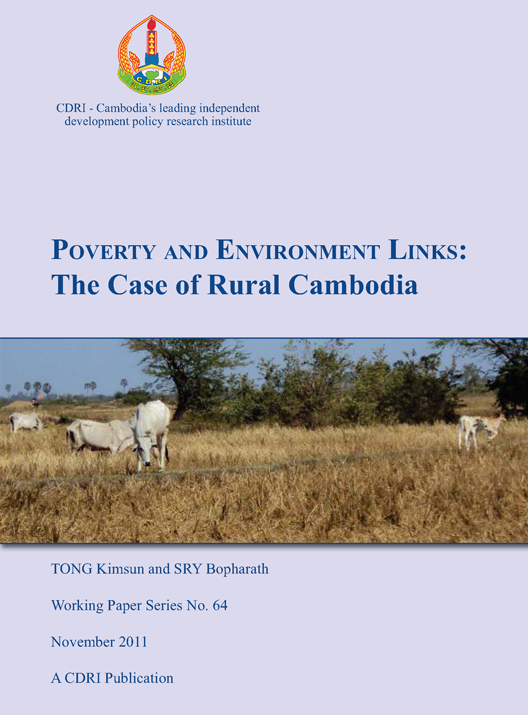
Poverty and Environment Links: The Case of Rural Cambodia
Environment and poverty nexus is still a polemical issue. Some schools of thought claim that it is poverty that has the major effect on the environment, while another perspective suggests that the environment has more impact on the poor than vice-versa because the poor have no power to exploit the environment. In the context of Cambodia, there is a...
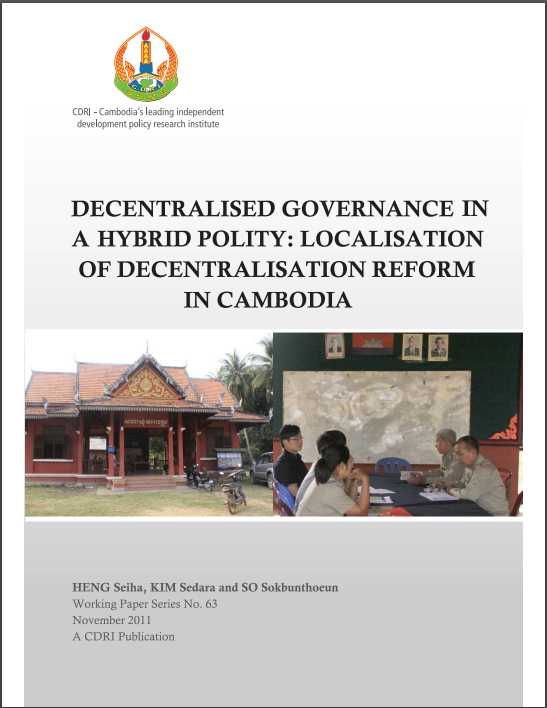
Decentralised Governance in a Hybrid Policy: Localisation of Decentralisation Reform in Cambodia
This paper reviews the progress of the decentralisation and deconcentration (D&D) reform in Cambodia. It revisits the conflicting positive and negative views on the achievements of the reform in the literature. The goal of the reform is twofold: promotion of local democracy and improvement of local service delivery. Both of these goals are theo...
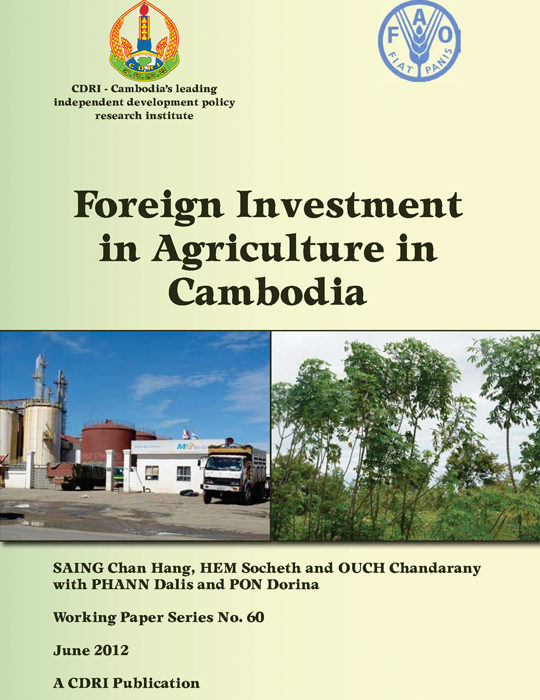
Foreign Investment in Agriculture in Cambodia
The noticeable rise in foreign direct investment (FDI) in agricultural land in developing countries in Africa, South and Central Asia and Latin America in recent years has sparked concerns among civil society groups and international organisations as to the potential impacts on poor local communities’ access to resources. Growing interest from...
